Processing Your Payment
Please do not leave this page until complete. This can take a few moments.
- News
-
Editions
View Digital Editions
Biweekly Issues
- December 1, 2025
- Nov. 17, 2025
- November 03, 2025
- October 20, 2025
- October 6, 2025
- September 22, 2025
- + More
Special Editions
- Lists
- Viewpoints
-
Our Events
Event Info
Award Honorees
- Calendar
- Biz Marketplace
Biovation II gets $978K from Marines for boot-drying technology
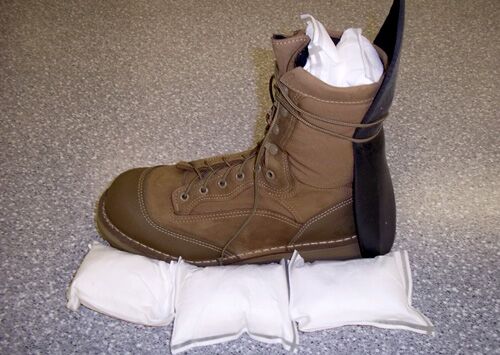 Photo/Courtesy Biovation
Biovation II LLC's prototype boot-drying system aimed at military applications currently uses multiple packs, pictured here. The company is trying to make the insert a single pack that can dry boots and other footwear with no power required.
Photo/Courtesy Biovation
Biovation II LLC's prototype boot-drying system aimed at military applications currently uses multiple packs, pictured here. The company is trying to make the insert a single pack that can dry boots and other footwear with no power required.
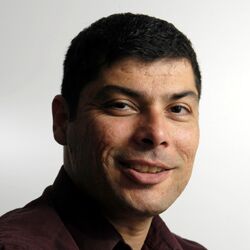 Photo/Courtesy Biovation
Kerem Durdag, CEO of high-tech firm Biovation, uses Maine-based materials to create cutting-edge polymers
Photo/Courtesy Biovation
Kerem Durdag, CEO of high-tech firm Biovation, uses Maine-based materials to create cutting-edge polymers
The U.S. Marine Corps has awarded Biovation II LLC, a manufacturing and bioscience company based in Boothbay, a $978,000 contract to develop a boot-drying product for soldiers.
The 20-month agreement calls for Biovation II to develop and test military-grade samples of a lightweight boot insert made of super-absorbent polymer and polylactic acid materials. The award will pay for field testing and benchmarking of the technology in preparation for high-volume manufacturing.
The idea is for soldiers to place the insert inside their boots overnight. It essentially absorbs and converts moisture into a gel-like substance while containing an antimicrobial chemical to reduce odor-causing pathogens. The insert, which requires no electrical power, can be reused multiple times until it is saturated, and then tossed and replaced with another insert. The materials used are biodegradable and biocompostable.
"It's a high-tech version of putting newspaper in, which is how we got the idea," explains Biovation II CEO Kerem Durdag. "It is basically a sock full of an advanced material." He adds that the testing will determine how many times the insert can be reused, how rugged it is and whether it can be stuffed into a backpack.
The contract with the Department of Navy, U.S. Marine Corps System Command, is from the Navy's Rapid Innovation Fund, created to move innovative technologies into acquisition programs. Durdag said the Marines will try out the thousands of test inserts his company will make under the contract, but there is no commitment to purchase the product after that. During the validation process, the prototypes will be tested and the company will make changes to the feedback four times.
Biovation II will make the products in Boothbay, and immediately plans to add two full-timers to its current staff of five, a senior production engineer and a manufacturing engineer, Durdag says.
He plans to validate the product prototype, for which he has filed utility patents, in the field within 20 months and have it in the market in 20-24 months, when he could sell it to other potential buyers such as hikers, campers, runners, firefighters and workers in heavy industries. It will be available in two or three sizes for different boot sizes and to accommodate female boot wearers.
The issue of wet feet emerged in World Wars I and II, as well as the Vietnam War, when soldiers on both sides suffered from trench foot, a fungal infection caused by prolonged wet feet due to the lack of waterproof footwear. While that isn't so much of a problem today, military boots still do get moist and sweaty during long days of wear, causing foot discomfort.
"They suffer blisters, chafing and their feet start to stink," says Durdag. To date, soldiers have carried multiple pairs of boots or taken changes of socks, but those eventually got wet. There are boot dryers on the market that are essentially inverted hair dryers, but Durdag says they weigh 5-10 pounds, require power and cost $100.
Durdag says the inserts will be a major part of Biovation II's product base, which comprises four other product lines using the same technology: consumer and institutional protection, food packaging, wound care and plant media. The wound care product is scheduled to go into U.S. Food and Drug Administration testing around the third quarter of this year. The company also plans to announce a health care product for reducing the risk of hospital-acquired infections in the next six to eight weeks with a U.S. partner, and get that product onto the market in nine to 12 months, Durdag says.
Biovation II is a portfolio company of Anania & Associates Investment Co., a Portland-based investment firm that Durdag says has put several million dollars into his company. Other investors have put in $500,000, but he declines to name them. Biovation II also has $421,500 from the Maine Technology Institute, with another $200,000 granted that it has not drawn down on yet, but plans to do so over the next year, he says.
Read more
Former FHC CEO joins Boothbay manufacturer Biovation to push global sales
Mainebiz web partners

The Giving Guide
The Giving Guide helps nonprofits have the opportunity to showcase and differentiate their organizations so that businesses better understand how they can contribute to a nonprofit’s mission and work.
Learn More
Work for ME
Work for ME is a workforce development tool to help Maine’s employers target Maine’s emerging workforce. Work for ME highlights each industry, its impact on Maine’s economy, the jobs available to entry-level workers, the training and education needed to get a career started.
Learn More
Groundbreaking Maine
Whether you’re a developer, financer, architect, or industry enthusiast, Groundbreaking Maine is crafted to be your go-to source for valuable insights in Maine’s real estate and construction community.
Learn more-
The Giving Guide
The Giving Guide helps nonprofits have the opportunity to showcase and differentiate their organizations so that businesses better understand how they can contribute to a nonprofit’s mission and work.
-
Work for ME
Work for ME is a workforce development tool to help Maine’s employers target Maine’s emerging workforce. Work for ME highlights each industry, its impact on Maine’s economy, the jobs available to entry-level workers, the training and education needed to get a career started.
-
Groundbreaking Maine
Whether you’re a developer, financer, architect, or industry enthusiast, Groundbreaking Maine is crafted to be your go-to source for valuable insights in Maine’s real estate and construction community.
ABOUT
NEW ENGLAND BUSINESS MEDIA SITES
No articles left
Get access now
In order to use this feature, we need some information from you. You can also login or register for a free account.
By clicking submit you are agreeing to our cookie usage and Privacy Policy
Already have an account? Login
Already have an account? Login
Want to create an account? Register
Get access now
In order to use this feature, we need some information from you. You can also login or register for a free account.
By clicking submit you are agreeing to our cookie usage and Privacy Policy
Already have an account? Login
Already have an account? Login
Want to create an account? Register
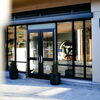

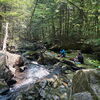

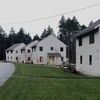
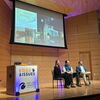

Comments